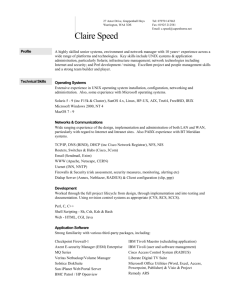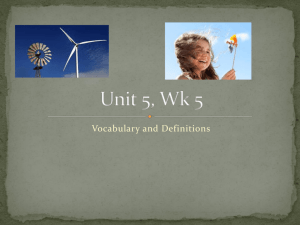Preface to the Special Issue on the International Conference on
advertisement
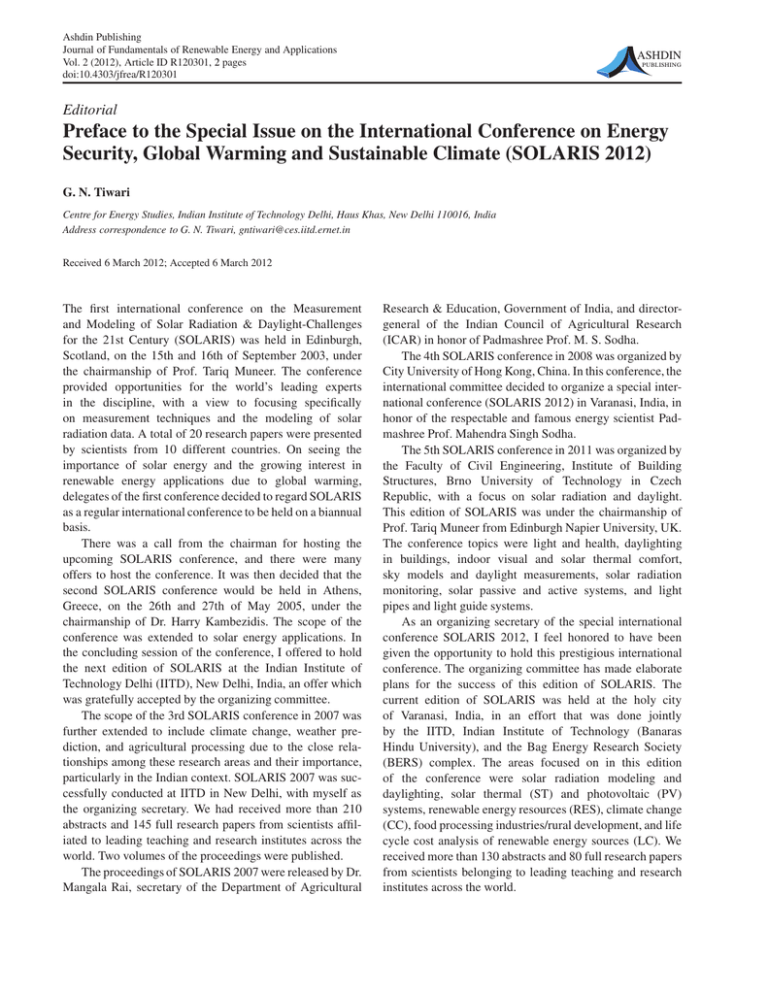
Ashdin Publishing Journal of Fundamentals of Renewable Energy and Applications Vol. 2 (2012), Article ID R120301, 2 pages doi:10.4303/jfrea/R120301 ASHDIN publishing Editorial Preface to the Special Issue on the International Conference on Energy Security, Global Warming and Sustainable Climate (SOLARIS 2012) G. N. Tiwari Centre for Energy Studies, Indian Institute of Technology Delhi, Haus Khas, New Delhi 110016, India Address correspondence to G. N. Tiwari, gntiwari@ces.iitd.ernet.in Received 6 March 2012; Accepted 6 March 2012 The first international conference on the Measurement and Modeling of Solar Radiation & Daylight-Challenges for the 21st Century (SOLARIS) was held in Edinburgh, Scotland, on the 15th and 16th of September 2003, under the chairmanship of Prof. Tariq Muneer. The conference provided opportunities for the world’s leading experts in the discipline, with a view to focusing specifically on measurement techniques and the modeling of solar radiation data. A total of 20 research papers were presented by scientists from 10 different countries. On seeing the importance of solar energy and the growing interest in renewable energy applications due to global warming, delegates of the first conference decided to regard SOLARIS as a regular international conference to be held on a biannual basis. There was a call from the chairman for hosting the upcoming SOLARIS conference, and there were many offers to host the conference. It was then decided that the second SOLARIS conference would be held in Athens, Greece, on the 26th and 27th of May 2005, under the chairmanship of Dr. Harry Kambezidis. The scope of the conference was extended to solar energy applications. In the concluding session of the conference, I offered to hold the next edition of SOLARIS at the Indian Institute of Technology Delhi (IITD), New Delhi, India, an offer which was gratefully accepted by the organizing committee. The scope of the 3rd SOLARIS conference in 2007 was further extended to include climate change, weather prediction, and agricultural processing due to the close relationships among these research areas and their importance, particularly in the Indian context. SOLARIS 2007 was successfully conducted at IITD in New Delhi, with myself as the organizing secretary. We had received more than 210 abstracts and 145 full research papers from scientists affiliated to leading teaching and research institutes across the world. Two volumes of the proceedings were published. The proceedings of SOLARIS 2007 were released by Dr. Mangala Rai, secretary of the Department of Agricultural Research & Education, Government of India, and directorgeneral of the Indian Council of Agricultural Research (ICAR) in honor of Padmashree Prof. M. S. Sodha. The 4th SOLARIS conference in 2008 was organized by City University of Hong Kong, China. In this conference, the international committee decided to organize a special international conference (SOLARIS 2012) in Varanasi, India, in honor of the respectable and famous energy scientist Padmashree Prof. Mahendra Singh Sodha. The 5th SOLARIS conference in 2011 was organized by the Faculty of Civil Engineering, Institute of Building Structures, Brno University of Technology in Czech Republic, with a focus on solar radiation and daylight. This edition of SOLARIS was under the chairmanship of Prof. Tariq Muneer from Edinburgh Napier University, UK. The conference topics were light and health, daylighting in buildings, indoor visual and solar thermal comfort, sky models and daylight measurements, solar radiation monitoring, solar passive and active systems, and light pipes and light guide systems. As an organizing secretary of the special international conference SOLARIS 2012, I feel honored to have been given the opportunity to hold this prestigious international conference. The organizing committee has made elaborate plans for the success of this edition of SOLARIS. The current edition of SOLARIS was held at the holy city of Varanasi, India, in an effort that was done jointly by the IITD, Indian Institute of Technology (Banaras Hindu University), and the Bag Energy Research Society (BERS) complex. The areas focused on in this edition of the conference were solar radiation modeling and daylighting, solar thermal (ST) and photovoltaic (PV) systems, renewable energy resources (RES), climate change (CC), food processing industries/rural development, and life cycle cost analysis of renewable energy sources (LC). We received more than 130 abstracts and 80 full research papers from scientists belonging to leading teaching and research institutes across the world. 2 Journal of Fundamentals of Renewable Energy and Applications We are especially thankful to the Ministry of Food Processing Industries in New Delhi for the financial support for the printing of the conference proceedings and of the best 15 papers selected by the guest of honor for publication in the Journal of Fundamentals of Renewable Energy and Applications. We are also thankful to our sponsors in New Delhi: the Department of Science and Technology (DST), the Embassy of Italy, the Council of Scientific and Industrial Research (CSIR), the IITD, and the BERS. I would like to extend a warm welcome to all the delegates and their families, not only to SOLARIS 2012, but also to India. I hope that you have an extremely enriching and rewarding experience from this conference. Prof. G. N. Tiwari Organizing Secretary SOLARIS 2012
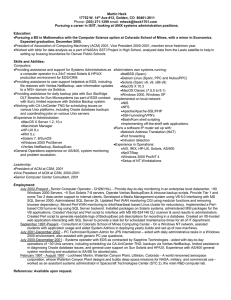
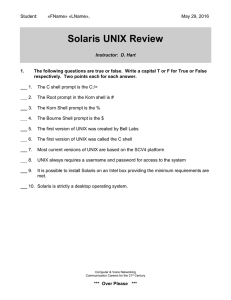
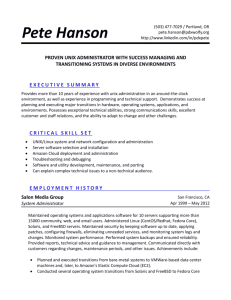

![[Solaris 11 Express] Configuring a static IP](http://s3.studylib.net/store/data/008269842_1-660d62a187eff89da6f426f63cc0fc98-300x300.png)
